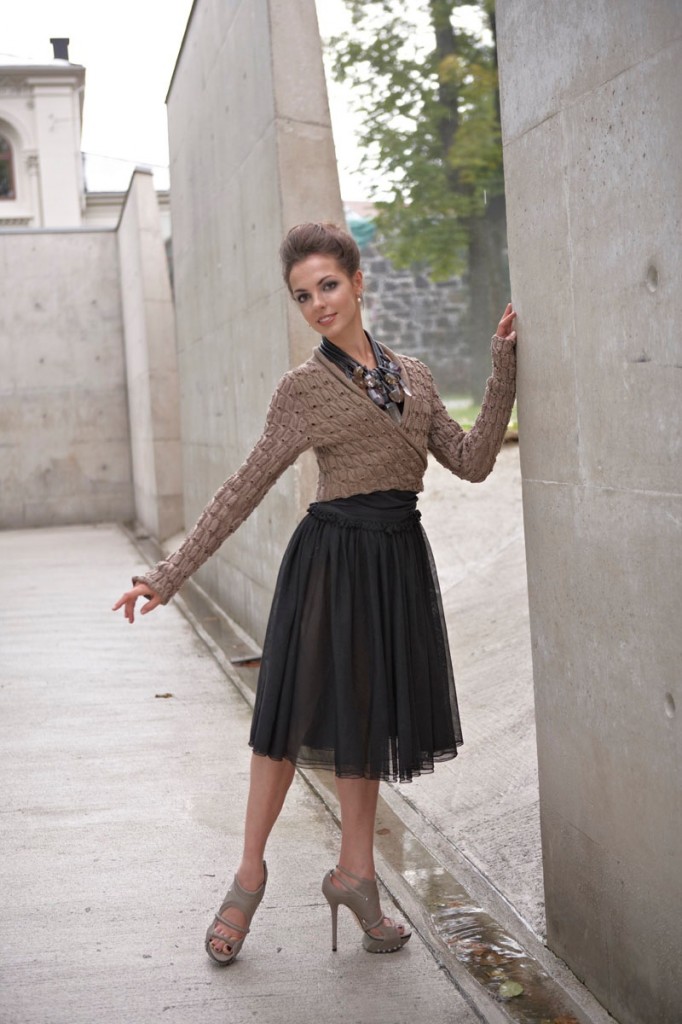Skin & Bones, was the name of a captivating exhibition I went to at Somerset House in London in 2008, marking the launch of the Embankment Galleries with their barrel vaulted space, which was extremely inspiring but equally thought provoking. It was a travelling exhibition from MOCA (Museum of Contemporary Art, Los Angeles) but even if you missed it – do not despair – there is a magnificent catalogue, see amazon.co.uk, and here is the: skinbones_exhibition_guide and the moca.galleryguide. The differences between the disciplines, traditionally remaining quite distinct, are obvious but the parallels are less visible until recent years. Curator Brooke Hodge express it better than I can: “Regardsless of scale, however, the point of origin for both practices is the body. Both protect and shelter, while providing a means to express identity – whether personal, political, religious, or cultural.”
“While the fashion designer and architect create objects that differ in size and materials, their creative processes can be strikingly similar. Both begin with a flat two-demensional medium, transforming it to create complex three-dimensional forms. The same prevailing aesthetic tendencies, ideological and theoretical foundations, and technological innovations have influenced each, resulting in garments and buildings that share stylistic or structural qualities or derive from common creative impulses. And, over time, designers in both fields have drawn from each other for inspiration as well as certain technical strategies. Vocabulary derived from architecture has been applied to garments “architectonic”, “constructed”, “sculptural” etc. And architects have also borrowed and adapted sartorial strategies and vocabulary from the fashion world, draping, wrapping, weaving, folding, printing and pleating surfaces and materials. The significant and manifold parallels manifested in the skin and bones of both garments and buildings are the subject of this exhibition and catalogue.” explains curator Brooke Hodge in the introduction to the extensive catalogue.
The interweaving of fashion and architecture continues at an ever increasing speed. At the exhibition 50 World leading designers and architect were presented, including their experiments with unusual materials, such as Vivienne Westwood, Alexander McQueen, Comme des Garcons, Yohji Yamamoto, Future Systems, Frank Gehry and Zaha Hadid. The catalogue is a visual treat, presenting architects and designers side by side.
A pure geometrical shape inspires both architects and designers alike at a conceptual stage of a design. Creating a sculptural design that play with dimensions is one of my aims together with an equally attractive reversible wrong side. I chose the “Cloister Walk”, at the Architectural Museum in Oslo, concrete walls placed next to each other leaving triangular glass openings as a back drop for selected patterns with similar openings in my knitting book. Above is a photo of dancer Francesca Golfetto from the National Ballet wearing Jacket in Cross. So unless you already study buildings around you, I suggest you do and ask yourself what inspired it? What geometrical shape formed this? How would it look in fabric? Or, indeed, knitted?

